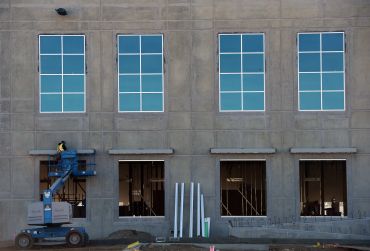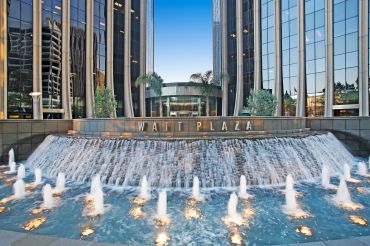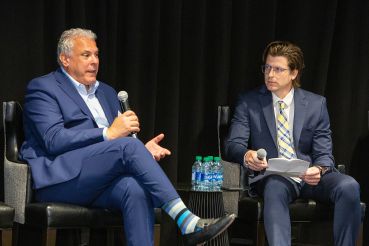Final Atlantic Yards Holdout, Daniel Goldstein, Sells to Ratner for $3 M.
By Eliot Brown April 21, 2010 9:07 pm
reprints For more than three years, Daniel Goldstein has lived with no neighbors.
For more than three years, Daniel Goldstein has lived with no neighbors.
A passerby to his 31-unit building at 636 Pacific Street every night will see just one apartment light on, surrounded by a sea of black windows that stand in the footprint for a new arena for the New Jersey Nets. Condo board meetings consist of himself and executives with Forest City Ratner, the developer trying to build the arena that bought out the rest of his building.
And for half a decade, he has been the face of opposition to Bruce Ratner and his planned $4.9 billion Atlantic Yards project, protesting every step of the way, pointing out flaws with every step of the project, and working with other opponents to file lawsuit after lawsuit to stop the development.
As of Wednesday, he is a holdout no longer.
With the state intending to use eminent domain to take his property within a matter of weeks or months, Mr. Goldstein agreed to a deal with Forest City Ratner to sell his apartment for $3 million, according to two people familiar with the deal. This is considerably more than the appraised value by the state ($510,000), as well as the amount he paid for it in 2003 ($590,000). Under the terms of the agreement, he must leave the apartment by May 7. Following a settlement with tenants of a neighboring building, there are no more holdouts living in the footprint.
Of course, Mr. Goldstein had Forest City Ratner in something of a tough spot: He would presumably have delayed arena construction enough to frustrate Forest City’s efforts to build the arena for the 2012 NBA season, so long as a judge ruled he could have stayed in his property. Forest City likely thought that by paying more than he would have gotten through the courts, they could once and for all rid themselves of a man who has been such a persistent thorn in their sides.
Still, it does offer something of a lesson to wavering holdouts in similar eminent domain situations: If you wait until the end, the payout might indeed be more lucrative.
Mr. Goldstein did agree to concessions: he will have to step aside as spokesman for Develop Don’t Destroy Brooklyn and not actively protest the project. He may still remain a member of DDDB and say what he likes about the project, a point he held strong on in negotiations, according to his attorney, Micheal Rikon.
“He is allowed to make any statements that he wants and exercise his First Amendment rights—which was, believe it or not, a key point in the final negotiations,” Mr. Rikon said. “He was perfectly willing to walk away from the settlement if it meant stopping him from expressing his opinions.”
Mr. Goldstein and other residents proved effective in holding up the project for at least a year more than Forest City ever expected with a string of lawsuits. The use of eminent domain was challenged in federal and state courts–an unusual approach that added months onto the process.
But ever since the state’s top court threw out the eminent domain case, the property takings have seemed a foregone conclusion, particularly after Forest City Ratner secured financing on the arena in December.
The last significant piece of the puzzle is the NBA approval of Russian billionaire Mikhail Prokhorov’s purchase of the Nets, and the related closing of his deal with Forest City to take the team and invest in the project.
ebrown@observer.com


